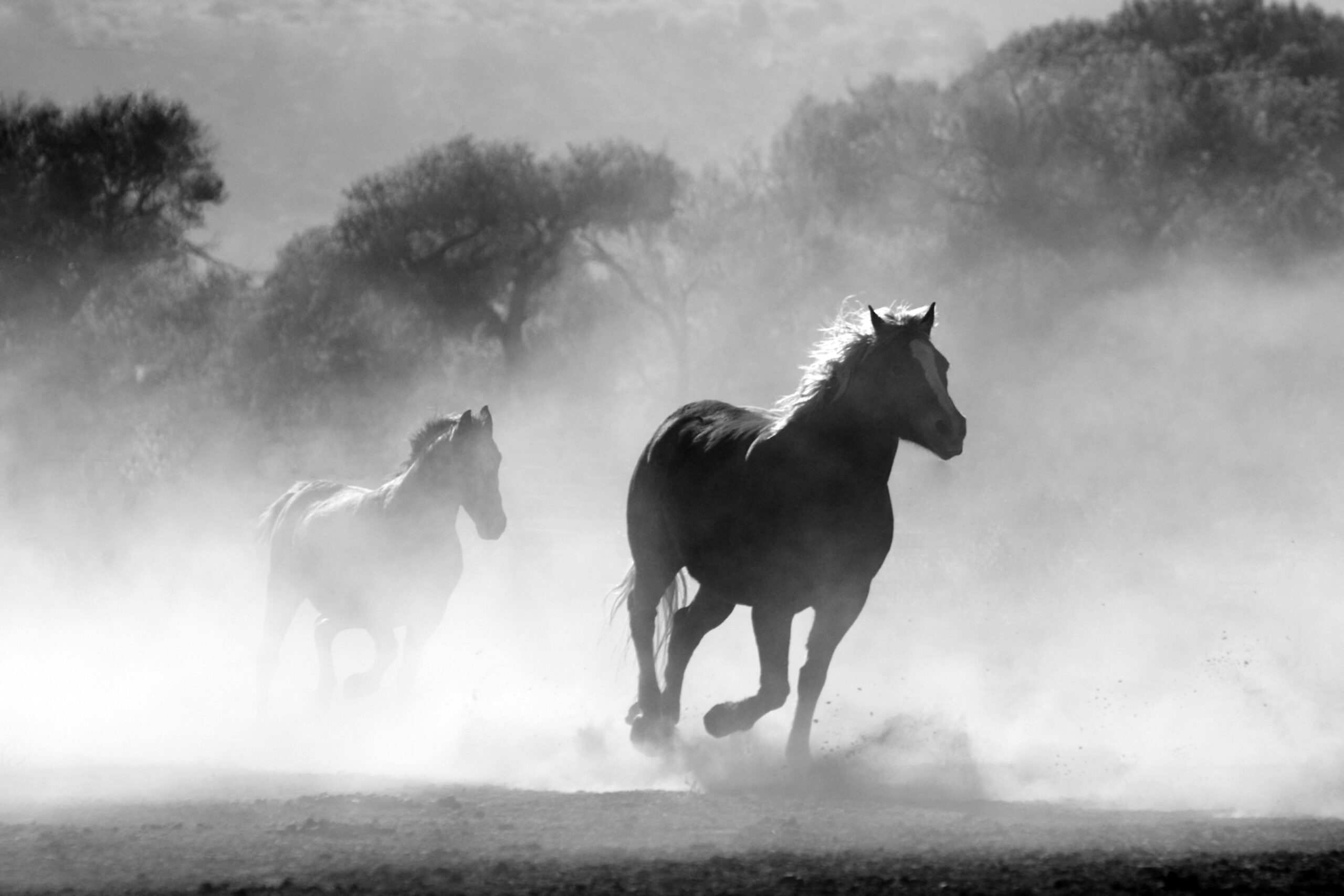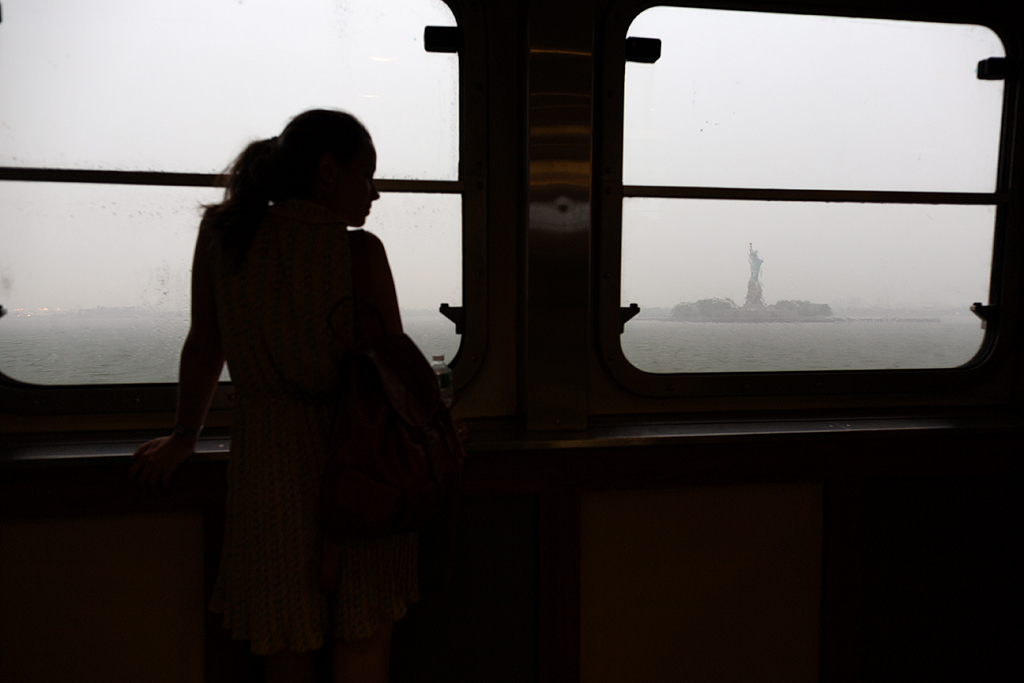We bought it to build a dream on, to propagate. He wanted to plant fruit trees and dig a pond; I imagined a center for healing, where women would come to believe again in possibility. We would build writing sheds, one for each of us, and a ring of rustic cabins for the women. In the mornings, we would come together, then go our separate ways. We’d meet up for dinner, to watch the shadows grow.
We bought it in summertime. In the house whose balcony was falling off, at the artists’ retreat in the Catskills, we broke the rules and dragged my bed across the hallway to his room. We pulled off the sheets, turned them sideways, and tied together our mattresses. We were trying to make a baby. I was reading Annie Proulx: stories about Wyoming men, leathered and cruel. Hopeless lives. We’d gone to Wyoming once, driven through toothy mountains and sat in a steaming pool, made love on the tiny bed. The chef had crusted our French toast with cornflakes. It was good. That was the time before we considered babies. Children—other people’s—looked like a hindrance. We had our own lives. We used to fight and then not speak for days. One night, I ran to the park on the far side of the city and sat on the swing, lost. He came in the car to find me.
At the real estate office at the edge of the Catskill Mountains, not really mountains, we stared at the photographs on the green walls. The first picture: a field with daisies. “That looks beautiful,” I thought, and then I said it out loud: “That looks beautiful.” It cost fourteen thousand dollars. For eight acres! There was a view. At first, he discounted it: there must be something wrong. Then he said okay. We drove out, following the agent in our red Accord, its finish ruined by pinesap. The car ran well. We had nothing to prove.
We drove behind the agent through country roads. There were hills, and it was green. There were farms and trailers, not a store in sight; a few roadside stands. We passed a river, and I saw the light shiver up and enter him. We drove over a mound, then past a field of wrecked cars. “Oh,” I said.
“Hmm,” he said.
We parked on the side of the property that had a road. It was on an incline. “We’d better put on the emergency brake,” I said. He screwed up his face, but he did as I suggested.
“We’d have to put in a driveway down at the bottom,” he said, thinking about the snow. Impossible to imagine in that heat, my hair wild with it. We got out and high-stepped over the sharp stalks. Wheat? It jutted through my sandals and stabbed between my toes. “Ouch!” I said, but I kept on walking. It was a big meadow. Pretty. It was divided by a long row of trees. Pretty.
The agent wasn’t sure where the property boundaries ran, so we walked around, looking for orange flags.
“It might go all the way over there,” she murmured, waving her hand into the far away. I filled my lungs.
We dodged crusted mounds of cow dung. I grasped his hand. “What do you think?”
“Did you see the pond?” He was tall enough that he could see the river over the trees—could see, he said, the place where people tied up their boats for later. His eyes darkened, or he was watching his dream.
Then we flew back to California.
“One day we’ll build there,” we said.
We kept trying to make a baby. We spent the money he’d inherited from his grandparents on hormone treatments. I had to stick needles in my belly and the soft flesh of my thighs. He’d meant to spend the money on a house to go on the land, the foundations: something of which the old man would’ve been proud. The treatments cost as much as the land. More than the land. The land remained, and we did not visit. The doctor said I was to stay quiet, but we knew it was there. We spoke of it as a fallback. “If the IVF doesn’t work . . . ” we said.
It was in San Francisco, in a white building with shining glass sides. A sperm struggled, or flew, into an egg. We weren’t there. The sperm was nudged by a scientist with a pipette and a good eye. Pipette: little pipe. We had a baby. It wasn’t that simple, but it didn’t matter. I was thirty-nine.
We couldn’t afford California, so we moved east, closer to the land. Only there was no way to visit—not with a baby. We couldn’t camp out there, not yet: no running water; nowhere to shelter from the electricity. He went out there with his father and stepmother to plant saplings. In a gale. Peach and apple. “It wasn’t fun,” he said. He showed me pictures: people with trees in their hands, trying to smile. They were soaked, planting anyway.
I couldn’t go because another baby was coming, this one on her own, pink and determined. That time, we were in the room. When egg met sperm, I mean. We were on the bed, looking out—me at least—at the tops of oak trees, their leaves tossed by a late-spring breeze. Afterwards, I threw my legs in the air and held my ankles while he talked. I was thinking about the date. When he went for his shower, I wrote it down.
The summer our daughter walked, it was seven years since we’d first seen the land, so we went there, the four of us. Our son, firstborn, looked at us with big eyes: “This is ours?” His sister didn’t understand possession yet, but she knew what she liked.
“Yes,” we said, “This land is our land.” If we never built on it, perhaps he would. He and his sister would always have a place. The thought made me happy.
The farmer who lived at the bottom of the hill, he whose cows had grazed and fertilized the stiff grasses, had not mown, as he had done when we were childless. It would be easy, in such a place, to create a mythology, a credo of superstitions: let the land alone and see. We rambled through the field, and the sharp stalks scratched at my daughter’s legs. I picked her up and stepped backwards into a cowpat, a thick cake. My children laughed. How they laughed. Their faces shone. Then they played with stones on the road. For hours.
The rusted cars had not moved, and the person who owned the land behind ours had built a cabin in the spot with the best view, the highest flat place from where you could look down and see river. If we, too, built in the highest flat place, our house would sit right in front of theirs. We would be looking into each other’s angry faces, around us acre upon empty acre, cows stomping through our yards.
We stood with our backs to the cabin, looking down over the valley; we turned our heads left, then right. There was a second-best spot.
Nicola Waldron is a graduate of Cambridge University and teaches creative writing at the University of South Carolina.
Click here to purchase Issue 04




